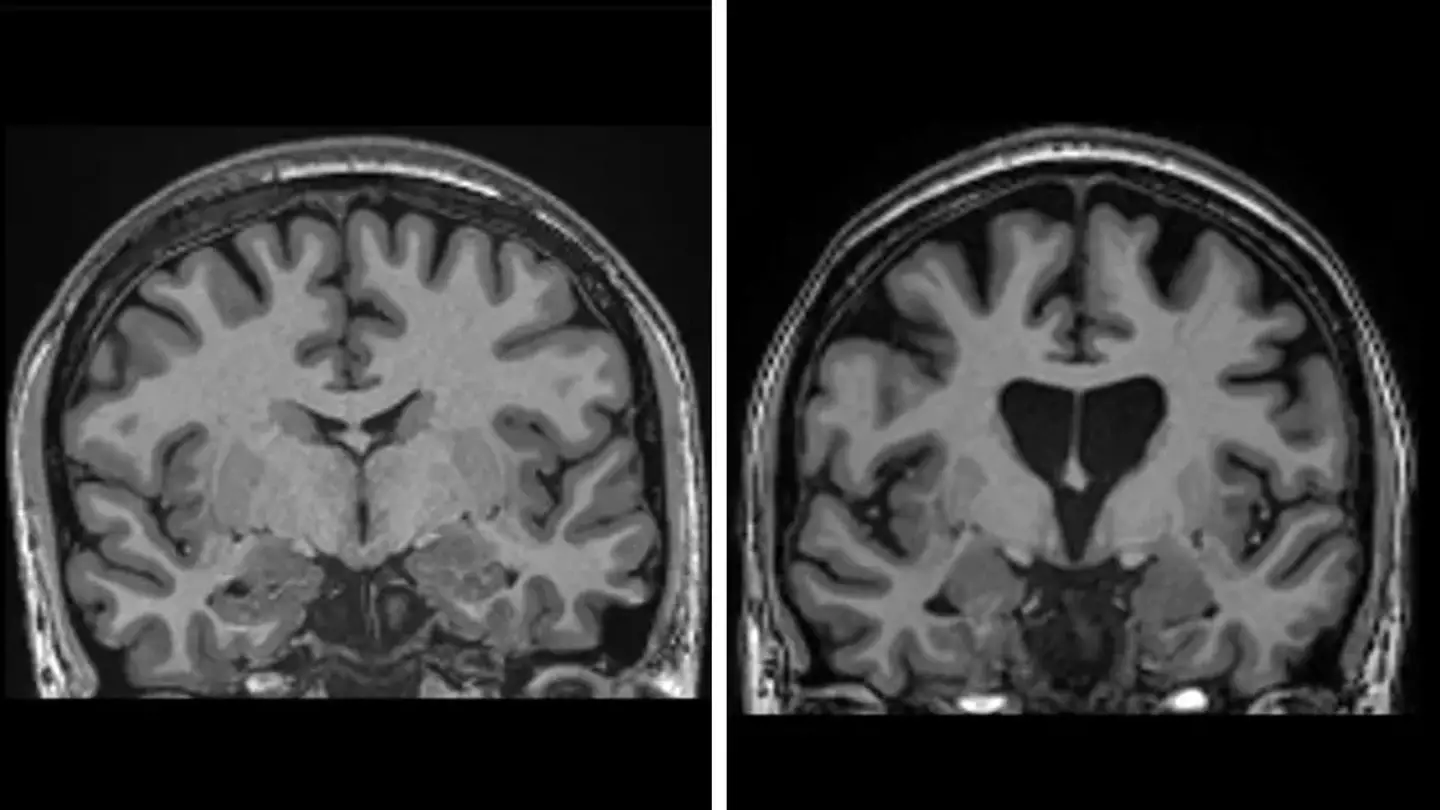
Doctors have successfully treated the inherited neurodegenerative disease Huntington's for the first time with a groundbreaking new treatment.
Huntington's is a rare health condition affecting around 5 in 100,000 people, which causes the progressive breakdown of nerve cells in the brain. It affects a person's movement, cognitive abilities, and emotions, which worsen over time.
A mutation of the HTT gene causes Huntington's disease, and when one parent has the gene mutation but the other doesn't, each child they have has a 50 per cent chance of inheriting the disease.
While there is no known cure for Huntington's, a research team that has been working on the treatment made an emotional announcement as they revealed data that showed the disease had slowed by 75 per cent.
Advert
The groundbreaking treatment would significantly improve the outlook for many Huntington's patients, meaning the deterioration you'd expect to see in one year would take four years, allowing patients decades of 'good quality life', according to Professor Sarah Tabrizi.
.jpg)
Symptoms for Huntington's disease usually emerge when patients are in their thirties or fifties, according to the NHS. However, this new treatment has now provided fresh hope that early treatment could prevent symptoms from developing altogether.
Professor Tabrizi, director of the University College London Huntington's Disease Centre, described the results as 'spectacular', as per BBC News.
"We never in our wildest dreams would have expected a 75 percent slowing of clinical progression," she said.
The incredible treatment involves a gene therapy given during 12 to 18 hours of extensive brain surgery. In Huntington's, the gene mutation affects a normal protein, called the huntingtin protein, which is essential in the brain and, when mutated, attacks and kills neurons.
This treatment works by permanently reducing the levels of this toxic protein using genetic medicine, which combines gene therapy and gene silencing technologies.
One person to receive the treatment is 30-year-old Jack May-Davis, a barrister's clerk who recently got engaged to his partner, Chloe.
Jack carries the Huntington's gene, which was passed on by his father, Fred and grandmother, Joyce, who both passed away from the illness.
Fred first started exhibiting symptoms in his late 30s, initially changing his movement and behaviour. Eventually, he needed 24-hour care before he died at the age of 54.
Jack said it was 'really awful and horrible' to witness his dad go through it all, and he always believed he was heading for the same fate until this 'absolutely incredible' breakthrough.
He now feels 'overwhelmed' to be able to look into a future that 'seems a little bit brighter, it does allow me to think my life could be that much longer.'
